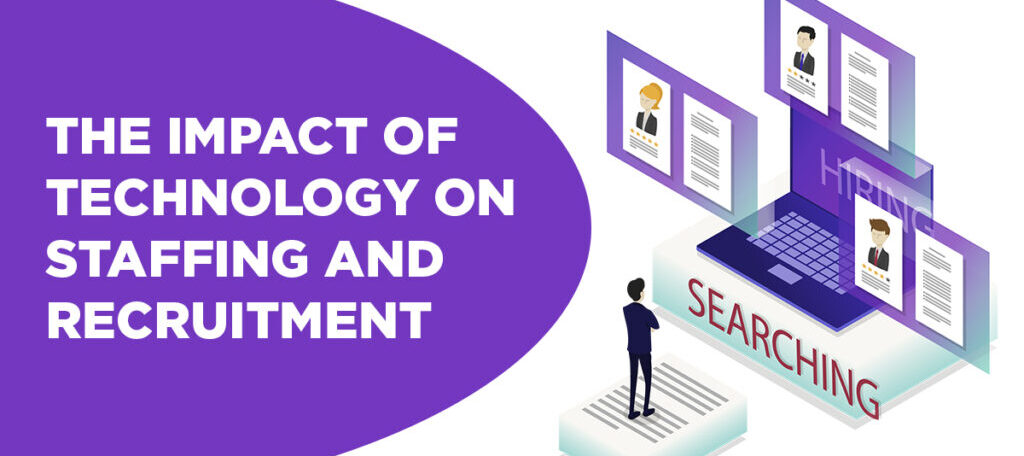The impact of technology on staffing has been immense over the past few years. With the advent of AI, automation, and other advanced technologies, staffing firms and recruitment agencies have witnessed significant changes in their approach to hiring and talent acquisition. From job posting to candidate screening, technology has transformed the staffing industry, making it more efficient, effective, and data-driven. In this blog post, we will explore the latest trends and innovations in staffing that are shaping the industry’s future.
Artificial Intelligence in Recruitment
AI has revolutionized the way recruiters and staffing firms approach talent acquisition. With AI-powered tools, recruiters can automate the candidate screening process, reducing the time and resources needed to find the right fit for a position. AI can also help identify high-potential candidates, reducing bias and increasing diversity in hiring. The use of chatbots and virtual assistants has also become popular in the staffing industry, providing 24/7 support to candidates and speeding up the application process.
Big Data Analytics in Staffing
Data-driven decision-making has become critical in the staffing industry. With big data analytics, staffing firms can analyze vast amounts of candidate data, including resumes, social media profiles, and behavioral patterns, to identify the right fit for a position. Analytics also helps staffing firms identify patterns in the recruitment process, such as the most effective job posting channels and the sources of high-quality candidates.
Automation in Staffing
Automation has become a buzzword in the staffing industry, with staffing firms using automation tools to streamline their recruitment processes. Automation can help reduce manual tasks such as resume screening, scheduling interviews, and sending follow-up emails, freeing up recruiters’ time to focus on more strategic tasks. Staffing firms are also using automation to personalize the recruitment process, sending personalized messages to candidates based on their interests, skills, and experience.
Virtual and Remote Hiring
The COVID-19 pandemic has accelerated the adoption of virtual and remote hiring in the staffing industry. With travel restrictions and social distancing measures in place, staffing firms have turned to virtual hiring technologies such as video interviews, online assessments, and virtual job fairs to attract and screen candidates. Virtual and remote hiring has not only made the recruitment process more efficient but has also opened up new opportunities for staffing firms to reach candidates outside of their immediate geographic area.
Social Media in Staffing
Social media has become an essential tool for staffing firms to attract and engage candidates. Staffing firms use social media platforms such as LinkedIn, Twitter, and Facebook to post job openings, engage with candidates, and build their brand. Social media also helps staffing firms identify potential candidates by analyzing social media data such as job titles, skills, and interests.
Skills-Based Hiring
Skills-based hiring has gained popularity in recent years as staffing firms move away from traditional job descriptions and focus on skills and competencies. By identifying the skills required for a position, staffing firms can attract a broader pool of candidates with diverse backgrounds and experiences. Skills-based hiring also helps reduce bias in recruitment by focusing on the candidate’s abilities rather than their credentials.
Conclusion
The impact of technology on staffing has been significant, and the industry is continuously evolving. AI, big data analytics, automation, virtual and remote hiring, social media, and skills-based hiring are some of the trends and innovations that staffing firms are adopting to stay ahead of the competition. As the industry continues to evolve, staffing firms must embrace these technologies and adapt their recruitment processes to attract and retain top talent in a competitive job market.









